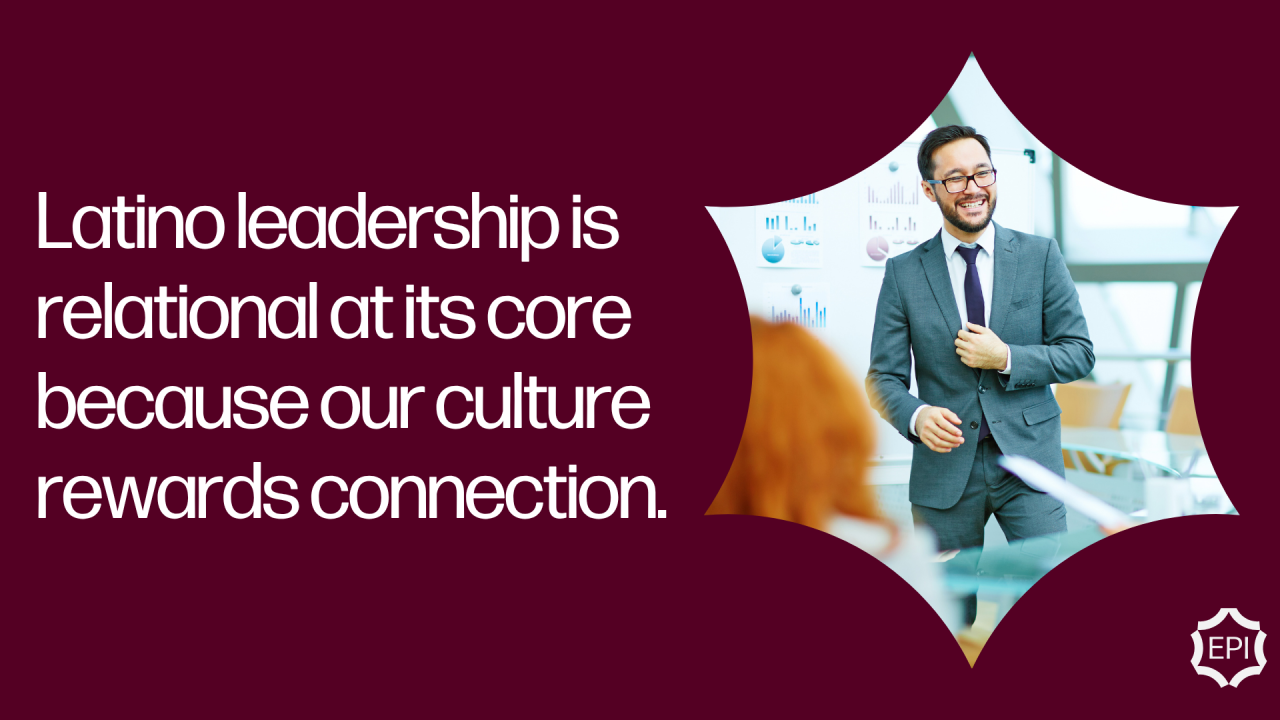At El Puente Institute, our research continues to uncover how deeply embedded cultural scripts like simpatía and personalismo influence how Latinos lead, build trust, and navigate career spaces.
Rooted in high-honor cultures, simpatía is more than being agreeable—it's a cultural script that values politeness, warmth, and emotional attunement. It encourages Latinos to seek social harmony, prioritize others, and engage with a sense of friendliness that shapes our identity and self-worth. Whether it’s how we define ourselves or how we show up in a team, simpatía creates a climate of connection that elevates human dignity.
Similarly, personalismo reflects our preference for personal, respectful, and trust-based relationships—especially in leadership and workplace dynamics. We don’t just do business—we build relaciones.
While these scripts are strengths, they also come with nuance.
In organizational cultures that reward assertiveness, individual achievement, or impersonal efficiency, our culturally grounded behaviors can be misunderstood as passivity or lack of ambition. This disconnect isn’t about capacity—it’s about cultural mismatch.
To close the leadership gap for Latinos, we must first recognize how our own scripts shape the way we lead, speak, and advocate for ourselves. Then, we must educate organizations to see these scripts as assets—not liabilities.
Because when Latinos lead with simpatía and personalismo, we don’t just get results—we bring out the best in people.
#ElPuenteInstitute #LatinoLeadership #Simpatía #Personalismo #CulturalScripts #OrganizationalBehavior #RelationalLeadership #LatinxExcellence #HonorCulture #CulturalSelfAwareness #LatinosAtWork #LeadershipDevelopment
At El Puente Institute, our research continues to uncover how deeply embedded cultural scripts like simpatía and personalismo influence how Latinos lead, build trust, and navigate career spaces.
Rooted in high-honor cultures, simpatía is more than being agreeable—it's a cultural script that values politeness, warmth, and emotional attunement. It encourages Latinos to seek social harmony, prioritize others, and engage with a sense of friendliness that shapes our identity and self-worth. Whether it’s how we define ourselves or how we show up in a team, simpatía creates a climate of connection that elevates human dignity.
Similarly, personalismo reflects our preference for personal, respectful, and trust-based relationships—especially in leadership and workplace dynamics. We don’t just do business—we build relaciones.
While these scripts are strengths, they also come with nuance.
In organizational cultures that reward assertiveness, individual achievement, or impersonal efficiency, our culturally grounded behaviors can be misunderstood as passivity or lack of ambition. This disconnect isn’t about capacity—it’s about cultural mismatch.
To close the leadership gap for Latinos, we must first recognize how our own scripts shape the way we lead, speak, and advocate for ourselves. Then, we must educate organizations to see these scripts as assets—not liabilities.
Because when Latinos lead with simpatía and personalismo, we don’t just get results—we bring out the best in people.
#ElPuenteInstitute #LatinoLeadership #Simpatía #Personalismo #CulturalScripts #OrganizationalBehavior #RelationalLeadership #LatinxExcellence #HonorCulture #CulturalSelfAwareness #LatinosAtWork #LeadershipDevelopment










